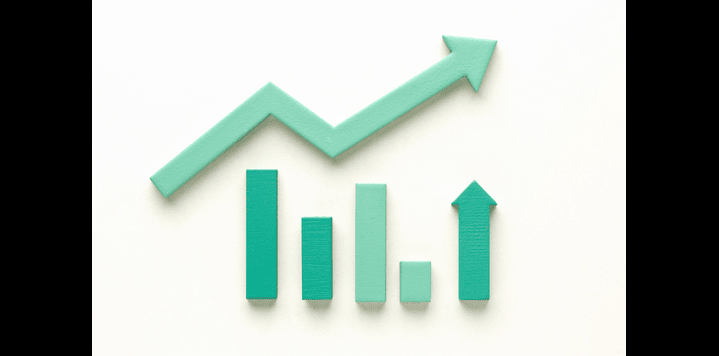
Explore different insights about day trading vs prop trading. When it comes to risk management, profit potential, and growth, discover the best path for your trading career.
How to Choose a Path Between Day Trading & Prop Trading
Day trading is a strategy in financial markets in which you buy and sell assets within the same day. It is a complex activity that requires a deep understanding of market trends, technical analysis, and the ability to make decisions quickly.
Prop trading – also known as proprietary trading – consists of working for a proprietary trading firm that provides capital and resources so you can execute your trades.
On one hand, day trading offers the freedom of being your own boss. On the other hand, prop trading provides structured support, training, and high-end platforms to master market volatility. Choosing between these two depends on your risk tolerance, goals, and how much you desire autonomy.
Major Contrasts in Risk Management

Risk management is the most important element for long-term survival in trading. As a day trader, you are solely responsible for developing a plan covering stop-loss orders, position sizing, portfolio diversification, etc.
Prop firms, on the other hand, impose their own risk management rules to protect their capital. These firms often design a robust risk management plan and use tools and managers to monitor funded traders to check adherence to the plan.
If you value autonomy to design your rules and adapt them to different market conditions, you might find it difficult to deal with the structured approach that prop firms employ to prioritize capital preservation. However, the firm’s strict risk management rules can help you develop discipline for long-term success.
Comparing Returns

Day trading attracts a lot of people because it offers the opportunity to capture high profits in a short period. However, these returns often come with increased risk compared to other trading strategies. Profits vary according to market conditions, events, and personal performance.
Prop trading also offers the opportunity to capture high profits, especially given the leverage available due to the firm’s capital. However, prop trading firms establish a profit split policy – you share a percentage of your profits with the firm in exchange for the capital they provide, the mentorship, platforms, etc.
Although some might not like the idea of profit splitting, it is important to consider that earnings, when partnered with a prop firm, tend to be more stable than independent day trading. Prop firms offer a structured environment with the most advanced platforms, mentorship from experienced traders, a risk management plan, a community for support, and educational resources – all to help the funded trader reach long-term success. It is also relevant to notice that several prop firms offer an 80/20 to even 90/10 profit split in the trader’s favor.
Initial Capital Requirements

One of the most relevant barriers to entry in day trading is the need for significant initial capital. Besides the inherent risks of losing money, day trading comes with several costs and expenses, such as brokerage fees, trading commissions, platform subscriptions, market data fees, margin interest, taxes, slippage, etc.
Prop trading firms, on the other hand, provide the capital so traders can execute trades, giving the advantage of trading larger positions without risking personal funds. Although it comes with the need to share profits, the fact you are not risking your money and are accessing the most advanced trading platforms available makes prop trading an extremely attractive choice.
Training & Support

More often than not, day traders operate in isolation, relying on self-taught strategies and personal experience. This approach leads to a slow learning process and can also lead to costly mistakes – think of people who blow their trading account.
The best prop trading firms offer training programs, mentorship, and continuous support during the partnership with the funded trader. Nowadays, some firms even have Discord channels and Telegram groups where their funded traders join together to share market insights, analyses, and calendars for relevant information.
The collaborative environment of a prop firm highly accelerates the learning process. You gain enough baggage by being around experienced traders and sharing your difficulties with them, allowing you to beware of avoiding the most common pitfalls while optimizing your path toward long-term success.
Career Prospects

Both independent day trading and prop trading offer unique benefits and challenges you must consider before deciding which path to choose. Both exercise different kinds of impact on your professional growth and work-life balance. Some points to consider include:
Day Trading Advantages:
- Unmatched levels of freedom and potential for high financial returns.
- Complete control over trading strategies, risk management, and decision-making.
Day Trading Challenges:
- High volatility and stress.
- Often leads to work in isolation, which can slow down the learning process and offer limited possibilities for networking.
- Limited opportunities for a structured career.
Prop Trading Advantages:
- Supportive environment with potential for networking with other traders.
- Access to high-level mentorship from experienced traders.
- Opportunity to grow inside the community and the firm, leading to more advanced positions, even reaching the role of a mentor in the long term.
Prop Trading Challenges:
- Requires strict adherence to the firm’s risk management rules.
- Not every firm offers a structured path toward a career.
Flexibility and Personal Growth
Besides all the core differences explored throughout this article, other important factors to consider are the levels of flexibility and personal growth each path can offer you.
Day trading often requires an extremely high level of self-discipline and independence. It does allow for flexible working hours and the freedom to implement personalized strategies without any external influence. This freedom, however, can easily become a double-edged sword, considering it can lead to inconsistency in performance and isolation without structured support.
Since prop trading enforces a culture of community and continuous improvements – you can join a community that shares insights, strategies, and relevant events – you will be in an environment that helps mitigate psychological pressures and also accelerate your professional development.
The support network in prop trading firms is invaluable, especially during higher volatility periods. This network ensures you are not going through challenges alone, and you can also get insights to navigate them better.
Conclusion
Deciding which is the most effective path between day trading and prop trading depends highly on your personal tolerance to risk, financial goals, and desired work environment.
Day trading offers an ideal lifestyle for those who value independence, the potential for high returns, and the freedom to control your trading system entirely. It demands, nonetheless, a significant amount of money to start, extreme self-discipline, and the ability to deal with the risks independently.
Prop trading provides the benefits of shared risk, structured training, and more stability. It is ideal for those looking for a more supportive environment full of resources.
Both paths require dedication, continuous effort to learn and adapt, and effective risk management. Beginners should ponder the main advantages and disadvantages of both approaches before they get a funded trading account.
Whichever path you choose, align it well with your personal trading style and career goals to reach long-term success and stability in such a dynamic market.
The post Day Trading vs Prop Trading Which Path Should You Choose? appeared first on New York Tech Media.
© 2025 Benzinga.com. Benzinga does not provide investment advice. All rights reserved.
Trade confidently with insights and alerts from analyst ratings, free reports and breaking news that affects the stocks you care about.